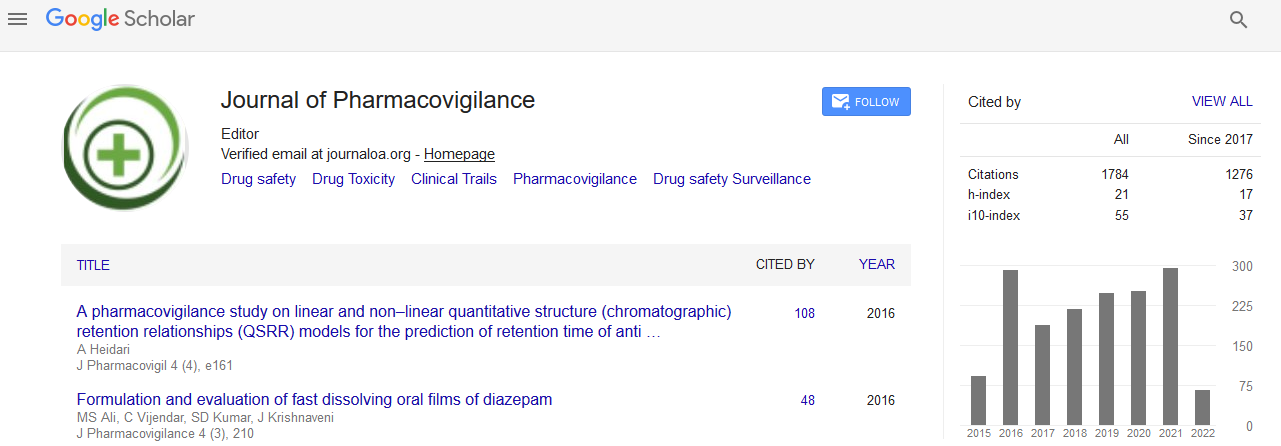Indexed In
- Open J Gate
- JournalTOCs
- The Global Impact Factor (GIF)
- RefSeek
- Hamdard University
- EBSCO A-Z
- OCLC- WorldCat
- Publons
- Euro Pub
- Google Scholar
Useful Links
Share This Page
Journal Flyer

Open Access Journals
- Agri and Aquaculture
- Biochemistry
- Bioinformatics & Systems Biology
- Business & Management
- Chemistry
- Clinical Sciences
- Engineering
- Food & Nutrition
- General Science
- Genetics & Molecular Biology
- Immunology & Microbiology
- Medical Sciences
- Neuroscience & Psychology
- Nursing & Health Care
- Pharmaceutical Sciences
Abstract
Implementation of Self Reporting Pharmacovigilance in Anti Tubercular Therapy Using Knowledge Based Approach
Sainul Abideen P, Chandrasekaran K, Uma Maheswaran, Vijayakumar A, Kalaiselvan V, Pradeep Mishra, Moza Al Hail, Abdul Rouf and Binny Thomas
Tuberculosis (TB) hampered with poor patient compliance and intolerance at least partially due to adverse drug reactions (ADRs). A prospective observational and interventional healthcare teamwork study was carried out to implement a self-reporting pharmacovigilance system in TB patients through a knowledge based approach in the Pulmonology department of Kovai Medical Center and Hospital (KMCH) at Coimbatore. A patient information pamphlet which was endorsed by the pulmonology associates was the core tool for this study. A well practiced and skilled clinical pharmacist educated the patients and enabled them to report the ADRs due to anti tubercular drugs through the emergency number given in the pamphlet. Totally 110 patients enrolled in the study. 43 (39%) patients experienced 74 numbers of ADRs during the intensive phase therapy. Out of 110 patients, 101 were adhered to the intensive phase therapy. Of the 74 ADRs experienced to our study population, 24 ADRs were occurred in 18 patients which are needed to be self reported by the patient according to the study protocol. Among 24 ADRs which have to be self reported, 20 (83.33%) ADRs were reported through 17 calls by 16 patients. The self-reporting pharmacovigilance for anti-tubercular therapy in pulmonology department of KMCH, Coimbatore, were implemented and was certified by the pulmonology associates. Our study concludes that if a proper educational system is implemented, most of the patients were ready to report their ADR of any drug and thereby we can improve both patient adherence and reducing the severity of ADRs. It is suggested that the pharmacists should exhibit their vital role during TB therapy in TB centres, pulmonology departments and DOTS centres to guarantee a better patient care.


